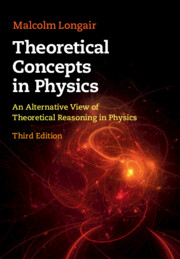Book contents
- Frontmatter
- Dedication
- Contents
- Preface and Acknowledgements
- 1 Introduction
- Case Study I The Origins of Newton’s Laws of Motion and of Gravity
- Case Study II Maxwell’s Equations
- Case Study III Mechanics and Dynamics: Linear and Non-linear
- Case Study IV Thermodynamics and Statistical Physics
- Case Study V The Origins of the Concepts of Quantisation and Quanta
- Case Study VI Special and General Relativity
- Case Study VII Cosmology and Physics
- 20 Cosmology
- 21 Dark Matter, Dark Energy and the Inflationary Paradigm
- Author Index
- Subject Index
21 - Dark Matter, Dark Energy and the Inflationary Paradigm
from Case Study VII - Cosmology and Physics
Published online by Cambridge University Press: 27 March 2020
- Frontmatter
- Dedication
- Contents
- Preface and Acknowledgements
- 1 Introduction
- Case Study I The Origins of Newton’s Laws of Motion and of Gravity
- Case Study II Maxwell’s Equations
- Case Study III Mechanics and Dynamics: Linear and Non-linear
- Case Study IV Thermodynamics and Statistical Physics
- Case Study V The Origins of the Concepts of Quantisation and Quanta
- Case Study VI Special and General Relativity
- Case Study VII Cosmology and Physics
- 20 Cosmology
- 21 Dark Matter, Dark Energy and the Inflationary Paradigm
- Author Index
- Subject Index
Summary
The success of the standard cosmological model with a finite cosmological constant raises many problem for fundamental physics. The inflationary model of the very early Universe provides a solution to a number of these problems but it requires the introduction of new physics. There is no physical realisation of the inflaton field. The model has, however, had a notable success in accounting for the origin of the fluctuations from which galaxies and the large-scale structure of the Universe formed. A solution to the origin of the baryon asymmetry of the Universe has yet to be found. Many cosmologists believe that the solution to these problems lies in the very earliest epochs, the Planck era, when gravity itself has to be quantised.
Keywords
- Type
- Chapter
- Information
- Theoretical Concepts in PhysicsAn Alternative View of Theoretical Reasoning in Physics, pp. 574 - 608Publisher: Cambridge University PressPrint publication year: 2020

